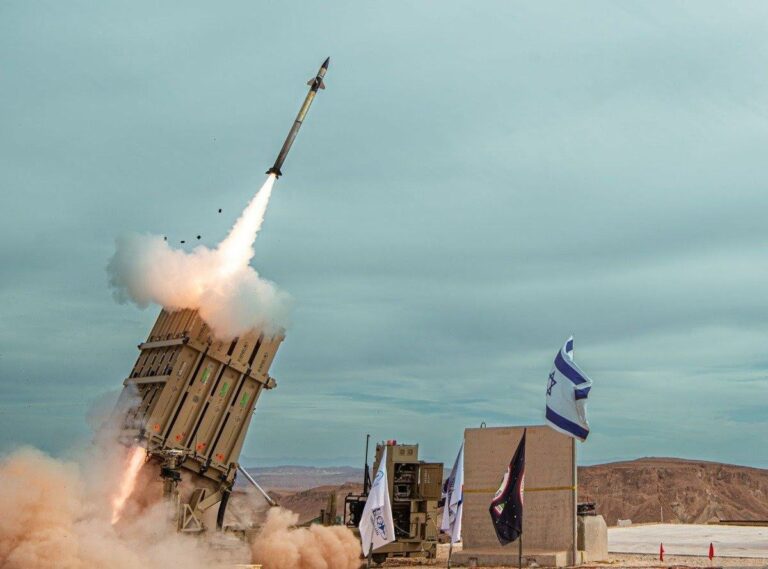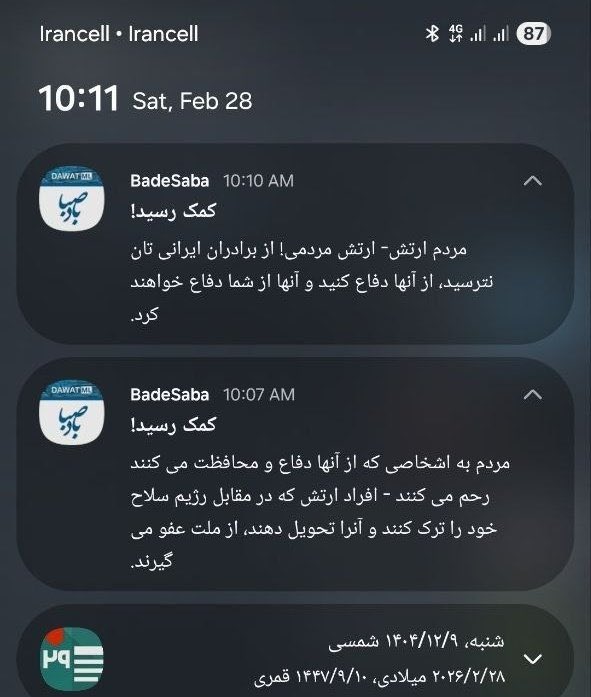 HaGaon HaRav Shmuel Auerbach Shlita is quoted as announcing he plans to wage an unrelenting battle against government ‘sharing the burden’ plans, unwilling to accept any formula that involves pulling bnei yeshivos away from their limud Torah. Rav Auerbach appears to be joining an effort hosted by the Eida Chareidis, and he met in his home with Gavaad HaGaon HaRav Yitzchok Tuvia Weiss towards advancing this effort.
HaGaon HaRav Shmuel Auerbach Shlita is quoted as announcing he plans to wage an unrelenting battle against government ‘sharing the burden’ plans, unwilling to accept any formula that involves pulling bnei yeshivos away from their limud Torah. Rav Auerbach appears to be joining an effort hosted by the Eida Chareidis, and he met in his home with Gavaad HaGaon HaRav Yitzchok Tuvia Weiss towards advancing this effort.
While Gedolei Torah in Bnei Brak over recent weeks and months signaled a willingness to show some flexibility in the sharing the burden issue, Rav Auerbach has been iron-fisted from the get go, maintaining a position of non-compromise surrounding any and all efforts to limit limud Torah in Eretz Yisrael. In past week Rav Auerbach has stated he will not accept any change in today’s situation and the tzibur at large must be willing to exhibit mesirus nefesh against this harsh gezeira at all costs.
(YWN – Israel Desk, Jerusalem)











19 Responses
When Bennett visited the Mirrer Yeshiva around Purim, one of the Rabbonim told him that he is no different than Amalek. Amalek attacked the weaker ones. He wants to take the weaker ones into the army. The yeshiva wants to take the weaker ones and strengthen them. Just for the record, about 20% of soldiers who are religious when they enter the army leave the army as no longer religious.
Now this is a war that I wouldn’t mind enlisting in.
ONCE again, what is the plan for bochurim who are not currently in FULL-TIME learning?
The government, citizens and residents of Israel know the RED LINES of the Charedi parties re: limud hatorah, yet when will there be a statement regarding drafting of non-learning bochurim??? or is there none 🙁
Does that mean willingness to go to prison? Does it mean willingness to tell Hareidim who are conscripted to “monkey wrench” the IDF (disobey orders, engage in sabotage when doing do would not be life threatening)?
Does it mean willingness to ally with the Israeli left (many of whom also oppose conscription, and who share an economic ideology with most hareidim, but have radically different social policies)?
Does it mean reconsidering the decision made in 1948 to support a zionist state in return for yeshiva exemptions, knowing the alteratives would be a Palestine in place of Israel?
In my humble opinion, the mistake that many Charedim are making is that they assume that it is either Torah or Army. However, B”H due to the efforts of Hesder and Yeshiva Gevoha institutions, there are now many options where Bnei Torah can continue to learn Torah and live a life of Torah while participating in either Army or National Service.
MichaelB: They are not offering the option of a hesder program and in fact they are curtailing the existing Dati Leumi hesder program since the IDF believes they have failed miserably (the graduates stay religious and don’t properly integrate into the mainstream and in some cases they consider disobeying army orders when they violate halacha). Lapid’s plan is three years under the same conditions of service as anyone else. Given that the army has no manpower shortage (i.e. more volunteers for combat units than needed), it is pretty obvious that the sole motive is to “break” the hareidi community.
akuperman:
While I understand your point, I still strongly maintain that they Charedi world is going about this all wrong. Instead of being stubborn and saying that we will not contribute an ounce to national service, the leadership should get up and say we would love to be a part of this wonderful cause but we have our religious requirements that need to be met. Therefore, we would be happy to join a hesder type of arrangement but we need certain gaurantees in order to ensure that this works.
The real shame is that the Charedi community has been brainwashed to think that being part of the larger tzibur and doing some volunteer work (whether in army or other forms) is a bad thing. In reality it is a good thing… but I agree that certain ‘frum’ requirements must first be met.
#6 – It’s news to me (and to the IDF) that the IDF considers Hesder to be miserable failure. That’s just your Satmar mishegas. In the real world, IDF units tend to compete to draw Hesder boys, nearly a quarter of the IDF’s field officers are D”L, and the Hesder yeshivot have been awarded the Israel Prize for their contribution to the nation.
From fact to speculation: If UTJ and Sha”s were to agree to turn all their yeshivas into Hesder yeshivas everyone, including Lapid, would bless ‘shehecheyanu’ beshem ubemalchut, sign on to the arrangement, and agree to sit with the charedim in the government.
B’H the charedi tzibbur has grown so large that they now constitute a significant portion of the population. And for as long as the charedim are prepared to recognise the state and accept its donations, it should at least pay it the minimum recognition. but why not make a proposal for integration into national service, whether through the creation of exclusive charedi units, or together with chardal, over a ten year period – with all decision making being made by a body of charedi rabbonim under the guidance of gedolei yisroel – to start to implement an integration of charedim on terms guided by daas torah and not according to those who despise the chardei tzibbur and whose goal is to push them off the derech r’l. and then review after that time. that way there will be no pressure, no complaints and the charedi tzibbur will be seen to take responsibility and also to not bow to irreligious demands.
Apparently apples do indeed fall far from the tree.
“Given that the army has no manpower shortage (i.e. more volunteers for combat units than needed)” – Again this old canard? I get so tired of hearing it! Every year for 15 years after completing their army duty, Israelis have to serve time in the army. Try running a business that way. Try maintaining a healthy family life that way. The army is NOT short manpower. If everyone did his part, then discharged soldiers can go home to stay.
I meant “the army IS short manpower” 🙂
I sense (or, possibly, though I doubt it, Hashem has revealed to me) that a lot of regular YWN readers are wondering why I have not weighed in on the “share-the-burden” issue. To the great disappointment of many of you, I have no analysis or opinion of this issue at this time. I do, however, have a boatload of questions, some of which are:
a. What is the cost to the government of the present subsidies to Chareidi community, including payments to yeshivas, payments to bochurim, and some indirect costs like supporting men in the 20’s with families but no employable skills? I have read nothing on YWN, or anywhere else, giving a hint at this cost.
b. How many otherwise draftable men and women have been exempted from IDF service or other national service because they are Chareidim engaged in learning?
c. Have any of the Gedolim or Roshim Yeshivos announced or determined that the State of Israel needs a specific number of men learning Torah, and if so what is the number? How many different numbers have been proposed, and by whom?
d. What is the relationship, if any, between the effectiveness of (i) the Iron Dome anti-missile system and (ii) 10 bochurs learning in a yeshiva?
I do not believe a sensible solution to the share-the-burden problem can be found without answers to these questions. There may be other information needed as well.
So. alas, I continue to have no opinion on this very important issue.
#8 – Read the hiloni newspapers – that means Haaretz, Ynet, etc. (NOT Arutz Sheva, which is basically frum). The belief that hesder is a resounding success and a good model is limited to the religious zionists, and not even all of those. See the article “Kavod HaTorah – Hesder & Loyalty to the State” from a few years ago on YWN (still available online).
The army regulations for the last 60+ years required the entire army to be strictly shomer shabbos, strictly kosher, strictly acting according to halacha. For the last 60+ the army has routinely disregarded its own regulations unless someone with protectsia loudly complained. Those likely to complain were either left in yeshiva (and not in the army), or in segregated units, or the rabbinut (where they could be frum, by letting the army be frei). The few who ended up in non-frum units have not been returning to their yeshivos with glowing reports about the army.
It is very clear from statistics (e.g how many people work under the table rather than learning full time) that most hareidim, except for Satmars and the like (whose refusal is really conscientious objection), would prefer to be baal ha-bassim, just like in America – and would serve in the army since they want to be able legally work – but that isn’t an option since the army is “glatt treff”. Those who try do not come back saying “no problem” – they come back complaining about being treated the way the Americans treated blacks 100 years ago.
most commentators on both sides are- surprisingly- thoughtful and write well reasoned arguments, wiht one exception= “miriamr”- who dissgraces this website with a truly shameful comment by an anonymous rov that (allegedly) equates bennet with amolek. If you would just READ THE PARSHA at the end of BESHALACH, you would see how disgusting that comment was. Who do you think waged actual war on Amalek? who do you think went out in all of the wars in the midbor? soldiers, real soldiers with real swords and real shields and led by the Segan hador, jehoshua bin Nun. why should that be different in today’s israel?
Mods, please remove comment #10; it is being mevaseh a tremendous talmis chacham bi’rabim.
MichaelB:
At the end of the day, any time devoted to army service is time not spent learning. And it’s not like there’s any pressing need for the Chareidim to enlist; the army is B”H doing just fine on its own.
nfgo3: while this may not answer all your questions, I would like to respond point by point.
a)If you use the “cost of subsidizing the community” argument, you must also calculate the benefits of a community dedicated to Torah study… unless c”v you argue that Torah study provides little or no benefit. That begs the question of exactly how “Jewish” is a Jewish State that devalues Torah study.
You must also consider the sizable portion of Chareidim who do NOT receive government subsidies. Should, for example, Satmar therefore be exempted from the draft? If not, then the argument falls apart. If yes, then congatulations, you just guaranteed a HUGE shift to Satmar!
Additionally, the cost of subsidy argument, if one is being intellectually honest, must then be applied to ALL communites. The Arab community represents 25% of Israel’s population (more than DOUBLE the size of the chareidi community) and receives significant subsidies. Should they be drafted? If no, then the argument, again, falls apart. If the response is “well, Israel is a Jewish state and Arabs aren’t Jewish” then you confirm the oft-made charge that Israel is a racist state. If the answer is yes, do you really want to arm and train a growing population that considers the creation of the state a “disaster”?
To the point of “employable skills”: if they leave the yeshivos to obtain these skills, they lose their deferrment. If the state of Israel, like EVERY OTHER western country offered a conscientuos objector status, a good number of these young men might actually leave the study halls and enter the work force (like they do in America) and thus no longer be a financial burden to the state.
b)How many otherwise draftable men and women from the NON-chareidim have been exempted from IDF service or other national service because they receive any of the variety of OTHER deferrments? I happen to know the answer to this one: about 20% of them. Even more so, How many draftable men and women have their Mommies and Daddies make arrangemnts for them to have nice cushy jobs in the rear (like Yair Lapid who sat bravely behind a typewriter and faced the dangers of writing courageous articles for the IDF newspaper thanks to his influential Daddy)?
c)The Gedolim and Roshei (not RoshIM) yeshivos HAVE answered this question… and there is nothing new to it: Learning Torah is our entire purpose as a people. EVERY Jew should learn Torah and EVERY Jew who wants to learn full-time should learn full-time. There is no cap. There is no “minimum”.
d) This is a straw-man argument. First, why 10 bochurim? Why not 100? Why not 1000? 10 is arbitray, making the entire argument meaningless.
Second, we really have no idea yet of how how effective Iron-Dome is, while we DO know that the effectiveness of Torah study is limitless. We rely on the name of Hashem, not chariots and horses (Tehillim 20) See “a” above on the value of Torah study.
Third, Iron-Dome is 100% subsidized by US taxpayers (or US debt). If Torah study and the chareidi community were similarly subsidized, would you make the same arguments?
Lastly (and I have made this point in other postings here on YWN) the entire “share-the-burden” argument is a red herring. Who shares the “burden” that the charedim bear? Who else dedicate themselves to a life of Torah and mitvot despite blinding poverty, degredation and often unbridled hatred? Surely a “Jewish” state must place SOME value on and have SOME repsect for THEIR contribution, THEIR share of the burden… mustn’t it???
nfgo3, this site really needs a “like” button.
#14 – I have been reading the Israeli Chiloni press for well over 30 years and have had conversations with a great many chilonim who have served in the IDF as soldiers and officers. The OVERWHELMING view voiced by chilonim is that the Hesder program has been a great success. Yes, some journalists have voiced concern regarding the willingness of Hesder units to follow orders contrary to their political beliefs – a legitimate question that has been amply answered in reality. But even they only speculated as to the wisdom of placing Hesder boys in homogeneous units, not about their quality and dedication as soldiers.
As for Kashrut and Shabbat in the IDF, you are motzie shem ra, plain and simple. Yes, the army’s regulations are not interpreted as strictly in units with no religious soldiers, but they are followed, and such units are becoming few and far between anyway. All IDF units have a rabbi who is on or near the spot and most frum boys serve in mixed units together with chilonim. I have spoken with many such boys and their families. While issues arise that must be resolved the consesus is that the IDF as an organization and the great majority of the individual soldiers and officers respect and accomadate religious needs and practices.
Case in point (and but one of many): the son of an acquaintance of mine volunteered several years ago to the navy, which is still relatively chiloni, and found himself as the only frum soldier on a patrol boat. While the galley had been kept kosher as a rule (regulations, you know) several soldiers, who did not want to be machshil the boy, told him that on occasion they had mixed utensils when no one else had been present. Within hours the commander had ordered the galley to be kashered under the new soldier’s supervision – and it was. The boy said that all was done in good cheer and that whenever there is a doubt people ask him what they should do.